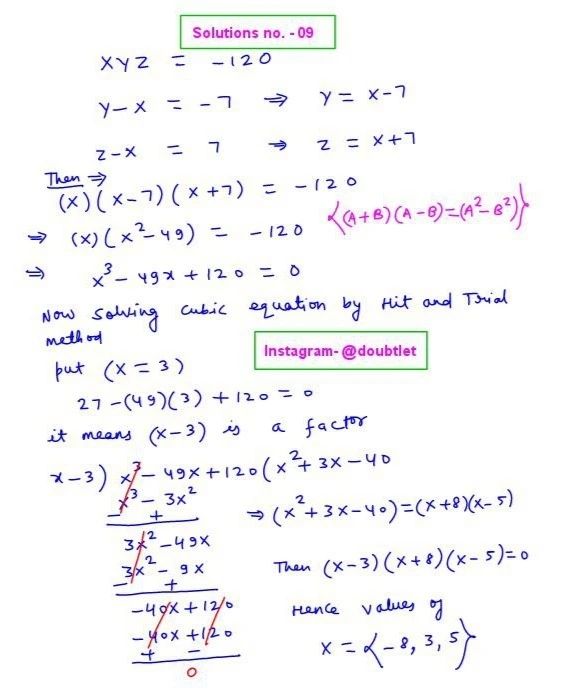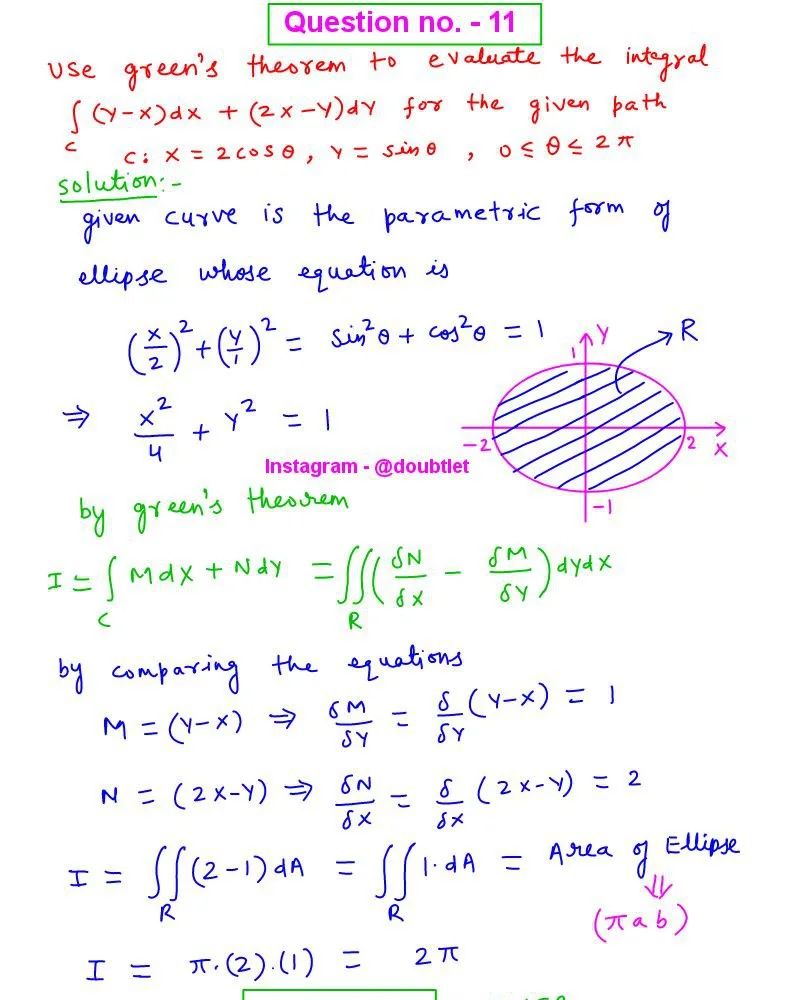









Top 5 Common Mistakes Students Make in Math Exams & How to Avoid Them | Doubtlet
Avoid common math exam mistakes with our expert tips! Learn how to tackle misreading questions, time management issues, and more to boost your scores. Explore Doubtlet's resources for homework help, QnA bank, and online tutoring for exam success.Struggling with math exams? Many students make simple yet costly mistakes like misreading questions or forgetting to show their work. Our latest blog on Doubtlet highlights the top five common math exam errors and provides actionable tips to help you avoid them. Learn how to prepare better and ace your next exam with our tutoring sessions, QnA bank, and other resources!

Neetesh Kumar | December 3, 2024
Share this Page on:
![]()
![]()
![]()
![]()
![]()
- 1. Top 5 Common Mistakes Students Make in Math Exams and How to Avoid Them
- 2. Introduction: The Pressure of Math Exams
- 3. Mistake #1: Misreading Questions – How to Slow Down and Focus
- 4. Mistake #2: Forgetting to Show Your Work
- 5. Mistake #3: Relying on Memorization Instead of Understanding
- 6. Mistake #4: Poor Time Management During the Exam
- 7. Mistake #5: Skipping Over Labwork – Why It’s Essential
- 8. How Tutoring Sessions Can Help You Avoid These Pitfalls
- 9. Conclusion: Be Prepared, Stay Calm, and Succeed
1. Top 5 Common Mistakes Students Make in Math Exams and How to Avoid Them:
Math exams. Just the thought of them can make students break into a sweat. We’ve all been there – staring at a question, feeling the pressure of time ticking away, and doubting every calculation. At Doubtlet, we understand the frustration that comes with math exams, which is why we’ve compiled the top five common mistakes students make and how to avoid them. This guide not only identifies where students typically trip up but also offers practical tips to help you overcome these challenges. Plus, we’ll show you how our resources like homework services, a QnA bank, and even formula sheets can give you the extra boost you need to succeed.
2. Introduction: The Pressure of Math Exams:
Math exams are notorious for putting students on edge. It’s a strange kind of battlefield where precision, timing, and understanding collide. The stakes feel high, and that’s where the mistakes begin. But did you know that most math mistakes aren’t due to a lack of knowledge? They often happen because of mental pressure, poor planning, or simple oversights. So, what can you do to avoid these pitfalls? Let’s break it down.
3. Mistake #1: Misreading Questions – How to Slow Down and Focus:
One of the biggest mistakes is rushing through a problem and misreading the question entirely. It's like being handed the key to the wrong door – no matter how hard you try, it won't open. Students often miss keywords like "not" or “always,” which completely change the meaning of the problem.
How to Avoid This:
Take a deep breath before diving into each question. Read it twice if you need to. At Doubtlet, we recommend practicing mindfulness techniques before an exam to keep your mind sharp and focused. Plus, our QnA bank gives you access to a variety of questions with detailed solutions, so you can get used to spotting tricky wording.
4. Mistake #2: Forgetting to Show Your Work:
Ah, the classic "I did it in my head" mistake. While you might get the right answer, math exams often reward the process, not just the final result. Without showing your work, even a correct answer might not get full credit.
How to Avoid This:
Always, always write down your steps. Think of your math paper as a treasure map – the teacher needs to see the path you took to reach the answer. If you’re unsure how to lay out your work effectively, our formula sheets at Doubtlet can serve as a guide to help structure your solutions and make sure you’re ticking all the boxes.
5. Mistake #3: Relying on Memorization Instead of Understanding:
Memorizing formulas and procedures is like building a house on sand. Sure, you can cram for a test, but when that tricky question pops up, the foundation collapses. Understanding how and why formulas work is what separates high achievers from the rest.
How to Avoid This:
Invest time in truly understanding the concepts behind the formulas. Ask yourself, "Why does this work?" or "When would I use this formula?" At Doubtlet, our tutoring sessions focus on conceptual learning, helping students grasp the ‘why’ behind the math rather than just the ‘how.’
6. Mistake #4: Poor Time Management During the Exam:
Running out of time is the ultimate nightmare during a math exam. Some students spend too long on one question, leaving no time for the easier ones.
How to Avoid This:
The key is prioritizing. If a question looks tough, skip it and come back later. Always start with the questions you know you can answer quickly. Practice timed exams using Doubtlet's resources like our QnA bank, which simulates real exam scenarios to help you practice pacing yourself effectively.
7. Mistake #5: Skipping Over Labwork – Why It’s Essential:
Many students think, "Labwork isn't that important. It won’t be in the exam." But guess what? Labwork often provides hands-on understanding of concepts that theory alone can’t cover. Skipping it is like skipping practice before a big game.
How to Avoid This:
Don’t underestimate the value of labwork. It's designed to give you a deeper understanding of mathematical concepts. Our calculator tools and interactive resources at Doubtlet can help you practice lab-related problems efficiently, ensuring you're not caught off guard when the exam throws in practical questions.
8. How Tutoring Sessions Can Help You Avoid These Pitfalls:
All of these mistakes can be avoided with the right guidance. Doubtlet's tutoring sessions are designed to help students navigate these common pitfalls. Whether it’s learning to manage your time better, understanding the concepts behind formulas, or practicing mindfulness techniques to stay calm during the exam – our tutors provide tailored support. Plus, with access to our QnA bank, formula sheets, and calculator tools, you’ll be well-equipped to tackle even the toughest of exams.
9. Conclusion: Be Prepared, Stay Calm, and Succeed:
In the end, math exams are all about preparation and mindset. Avoiding these common mistakes can be the difference between a passing grade and an exceptional one. By reading questions carefully, showing your work, understanding concepts, managing time, and valuing labwork, you set yourself up for success. At Doubtlet, we're here to help you every step of the way with resources designed to make math just a little less daunting.
So, next time you’re preparing for a math exam, remember: don’t just memorize, understand. Don’t just solve, explain. And if you need help along the way, Doubtlet has your back with tutoring, a QnA bank, formula sheets, and calculators – everything you need to succeed.
If you have any suggestions regarding the improvement of the content of this page, please write to me at My Official Email Address: [email protected]
Are you Stuck on homework, assignments, projects, quizzes, labs, midterms, or exams?
To get connected to our tutors in real-time. Sign up and get registered with us.
Matrix Adjoint Calculator
Matrix Formula Sheet
Linear Algebra Calculators
Matrix Inverse Calculator
Matrix Scalar Multiplication Calculator
Blog Information
Blog Author: Neetesh Kumar
Blog Publisher: Doubtlet
Comments(0)
Your comment will be reviewed before it is published.



Leave a comment